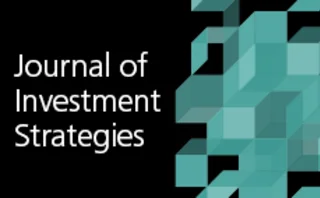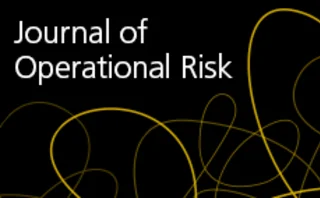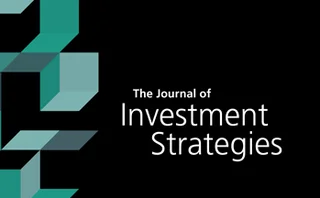Behavioural finance
Charting the landscape of short selling: an infometric study shaped by market sentiments
The authors aim to clarify the formulation of short-selling scenarios by providing a comprehensive bibliometric review of research in areas surrounding the topic.
The hidden effects of stress on risk takers
Trader turned neuroscientist urges financial firms to monitor trader physiology, hire fewer physicists
Smaller drawdowns, higher average and risk-adjusted returns for equity portfolios, using options and power-log optimization based on a behavioral model of investor preferences
The authors use a power-log utility optimization algorithm based on a behavioral model of investor preferences, along with either a call or a put option overlay, to reverse the negative skewness of monthly Standard & Poor’s 500 (S&P 500) index returns…
Does the source of information influence depositors’ withdrawal intentions during operational events?
The objective of this paper is to identify whether depositors’ intentions to withdraw funds during operational risk events differ based on the source of information.
Economic policy uncertainty, investors’ attention and US real estate investment trusts’ herding behaviors
Using a quantile regression model, this study examines economic policy uncertainty and investors’ attention for policy risk on US real estate investment trusts’ (REITs’) herding behaviors.
Behavioural finance, alt data and risk-free rate problems
The week on Risk.net, June 27–July 3, 2020
The scientists probing the human mind for an investing edge
Recent advances in behavioural finance could give rise to new quant models and strategies
Integrating macroeconomic variables into behavioral models for interest rate risk measurement in the banking book
This paper proposed a nonparametric approach to decompose a macroeconomic variable into an interest-rate-correlated component and a macro-specific component.
Connecting equity and foreign exchange markets through the WM “Fix”: a trading strategy
In this paper, the authors show the connection between equities and foreign exchange markets via this window, they leverage this connection using an algorithmic trading strategy and rank various statistical techniques used to make predictions for trading…
A behavioural lens could help manage human risk
Human decision-making needs careful watching. For that, behavioural science can help
Podcast: Princeton’s Carmona on the future of quant education
Course director discusses machine learning explainability and reclaiming game theory from economists
Teach history to avoid mistakes of yesterday’s quants
Quant grads should be taught follies of LTCM, Gaussian copula and London Whale, writes UBS’s Gordon Lee
Chaotic behavior in financial market volatility
In this paper, the authors present a robust method for the detection of chaos based on the Lyapunov exponent, which is consistent even for noisy and finite scalar time series.
How not to control trading behaviour
Quants show popular risk measures fail to limit risk-seeking behaviour among traders
Investors take note as quality in Japan wakes up
Upturn in performance creates chance of “fundamental factor timing”, analyst says
Bridgewater’s Murray on radical transparency and op risk
Risk30 profile: “People think we’re crazy,” says giant fund’s co-CEO of its unique approach to op risk
Behavioral risks at the systemic level
By comparing the Libor and FX benchmark manipulation scandals, this paper describes how misbehavior emerged independently in both of these markets and the conditions that permitted the misconduct to survive and thrive.
Andrew Lo’s theory to beat a theory
Author of Adaptive Markets tells Risk.net what his ideas mean for investors and regulators
Bank scandals suggest cultural problems are industry-wide
Libor-rigging and similar misconduct across multiple firms may be the result of 'macro-cultures'
The excess returns of “quality” stocks: a behavioral anomaly
This paper investigates the causes of the quality anomaly by exploring two potential explanations - the “risk view” and the “behavioral view”.
Economists, like hedge fund traders, need open minds
Economists, risk managers and traders must learn the lessons of crisis, says Kaminski

















